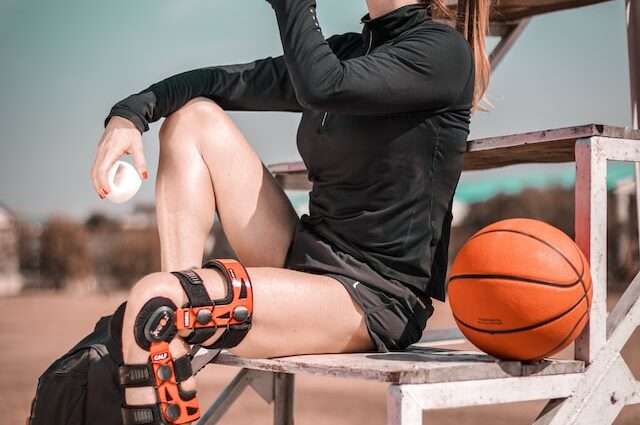Beth Rush
The physical pain of an injury is just the beginning of the struggles you experience when recovering. The psychological effects of any sports injuries also weigh a lot on the mind. This happens primarily when you rely heavily on the activity for happiness. The length of recovery can create anxiety about the injury and if you will ever play again.
Although we take precautions to prevent injuries in physical activities, it is inevitable they will occur. When they do, sports injuries and poor mental health go hand and hand. When a teammate, friend or family member goes through this pain, showing your love and support is essential while they make their return. Here are some points to help you understand their experience and tips to show your support during these times.
The Psychological Effects of Injury
Sports may be one of the most important things in your life. When an injury prevents you from playing, you’re left with depression and anxiety about what is next.
You will likely experience many emotions throughout the healing process. Your mental health may suffer during the injury, recovery, and eventual return to the sport. This is perfectly normal and should be expected during this time.
A severe injury, such as an ACL tear, will require extensive treatment. Going through long treatments and healing processes is bound to affect your mental health, especially if you cannot play for the rest of the season. This will weigh on your mind heavily if you use sports as therapy. It leaves you insecure about what can keep you occupied and happy since you can no longer participate in your favorite sport.
Sports Injury and Anxiety
The recovery process can be complicated when you are already struggling from not being able to compete, but now you may have anxiety about the future. Your skill level may not be the same. There is constant stress and anxiety during this stage because you want to do everything you were used to doing right away. Still, specific injuries require you to take slow steps to return to your full potential.
This is one of the most complex parts of recovery because most athletes want to push themselves to speed up the process. This can cause more stress on the injury and possibly slow your recovery if you don’t give your body the time it needs to heal.
Injury Limitations When Returning
If you tear your ACL, returning to the sport requires constant preparation, such as stretching, taping, and physical care on your leg before the event. An ACL tear can lead to more stress on your hamstring, quads, or other ligaments in the knee. That’s because the recovery process will require these muscles to become stronger to prevent the injury from reoccurring.
Constant stress on your muscles can also lengthen the healing process. You might be anxious about some of your moves because you are afraid of reinjuring. For example, if you are a receiver in football, you’ll likely second-guess some of the routes you run and cuts you take because you don’t want to harm your bad knee.
How to Show Support
When someone you know goes through this type of situation, having a support system can help ease the physiological effects of the injury. Sports injury, anxiety and depression tend to align, making it essential for loved ones to keep their head up. These are some ways to support someone during this time.
-
You Are Not Alone
It is important to remember that you or someone close to you may feel alone during this time. Plenty of professional and student-athletes have experienced severe sports injuries. It is something that unfortunately happens often when involved in a sport. Some of the best athletes have endured the mental struggles of recovering from an injury.
-
Use Visualization
Asking someone who is injured to use the power of visualization can help them a lot. Famous athletes like Muhammad Ali and Arnold Schwarzenegger were big believers in how visualization helped them become successful in their careers. Your mind is extremely powerful and can help you reach goals, such as becoming a healthy version of someone with an injury.
Visualizing a healthy and healed version reemphasizes the fact that you will get better. It is easy to get sucked into a mindset of feeling like things will not improve, but they will. Imagining your future brings back positive feelings of returning to the sport you loved.
-
Use Goal Setting
Help your friend develop goals for themselves. Athletes are used to setting goals, so keeping that mindset can help them while healing. These can be applied during the healing process or after the injury, such as running a marathon.
Make sure the goals are specific and measurable. Getting detailed can make it easier to recognize when it is achieved. This can help the healing process go quicker and make someone excited to jump back into things after healing.
-
Validate Feelings
Sports can be a big part of your life. It is normal to feel disappointed and upset if you cannot participate. Let them know their feelings are valid. There can be a sense of loss beyond the playing, and they could miss teammates or the accomplishments of winning a game.
Recognizing feelings is the first step to managing them. Helping a loved one own their emotions and move through them can greatly improve their mental outlook.
Getting Back in the Game
Almost every athlete will experience an injury at some point, whether big or small. Having support and a plan to deal with the setbacks can make the recovery process less daunting. Before you know it, the healing will be complete and your friend or loved one will be able to return to the sport they love, with you cheering them on.
Featured image courtesy of Eagle Media Pro on Unsplash. No changes were made to this image. Image license found here.

